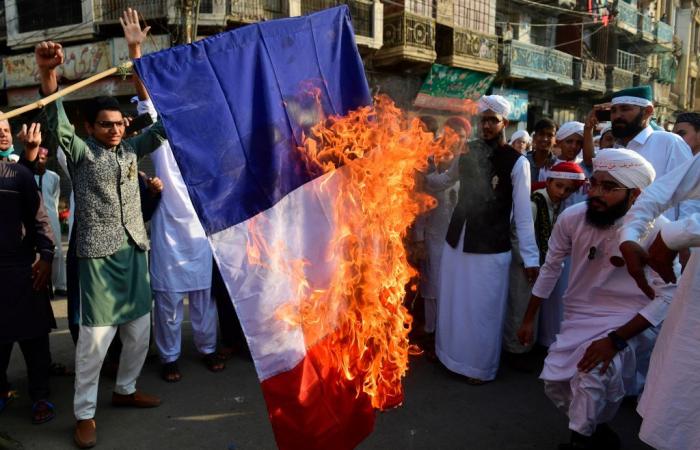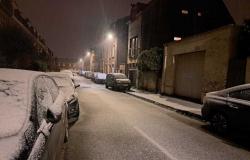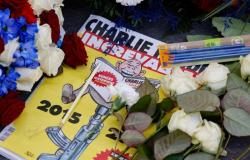As Riss noted, the great and the good who gathered at this august university were the same political class that a few years earlier had rebuked Charlie Hebdo for taking liberties with the prophet. This included figures like Jean-Marc Ayrault, a veteran socialist who for years before 2015 had criticized Charlie Hebdo for being too harsh on Muslims. These are the people who, through their own complacency and complicity, created the conditions in which jihadists could continue to thrive long after 2015.
To be fair, Riss is not entirely alone in defending the traditions of French secularism. In the political arena, after all, Marine Le Pen’s Rassemblement National (RN) is leading the way, using freedom of expression as a key marker of French identity. When I attended an RN rally last summer, Le Pen only had to say the word “Islam” to provoke angry boos and the display of tricolor flags in the crowd.
And while Le Pen obviously has electoral incentives to be tough, other corners of the right are moving in a similar direction. A good example is Talker. A non-partisan newspaper with growing influence in France, it devoted its latest issue to the events of January 7. The editorial line is simple: since January 2015, no one in French politics or the media, whether right or left, has had the courage of their convictions regarding freedom of expression, and more specifically to challenge Islamist totalitarianism.
Among other things, the special edition of Talker contains an interview with Philippe Val, former editor-in-chief of Charlie Hebdo. Val is a controversial figure in the French media. He has been accused of flirting with the far right, notably by defending the ultra-conservative’s editorial policies Current Values. The reality, however, is that he is this very old-school figure: a French free speech absolutist. This position does not sit well with the constantly evolving Jean-Luc Mélenchon. Yet, according to Val, the fact is that although security forces are doing their best to contain Islamist violence, the real political problem is that the left refuses to believe that there is a small but dangerous part of the French population who hates the Republic and wants to destroy it.
It is therefore not surprising that the language of war has persisted, a decade after that lunch in the 7th. In 2022, for example, a group of retired generals called for a full-blown declaration of war against “the Islamists and others who want to destroy us,” a proclamation that won tens of thousands of supporters in polls. The investigations, for their part, were organized by the troublemakers of Current Valueswho obviously knew what kind of trouble they were causing. Nevertheless, their escapades provide a real insight into how ordinary French people, outside of the political and media classes, feel that their country has been threatened — and still is. Dismissing this sentiment as exaggerated emotion, or populist ignorance, only further alienates ordinary citizens and fuels their contempt for traditional politics. This, in turn, explains the current paralysis of French politics: the center has collapsed, but neither the right nor the left can muster a consensus beyond their own tribes.
It goes without saying, of course, that radical Islam, like mass immigration, is a phenomenon that affects the whole of Europe. But in France, there is always a particular local significance to conflicts with the Muslim world. This is partly due to the complexities of the former French Empire. Since its first conquests in the 19th century in North Africa and the Middle East, France has always sought to establish itself as “a Muslim power” (a power in the Muslim world). Yet this position has long been tarnished by the brutal Algerian War and other colonial crimes. France’s status as a global leader in militant secularism obviously matters too, which is why it has been targeted by militant Islamist groups from Morocco to Pakistan.
The result? Even more than Germany or Sweden or Britain, France’s way of balancing freedom and faith is remarkably delicate. And if this explains, in part at least, how the writers and the designer of Charlie Hebdo were fatally caught in the crossfire, between French civilization on the one hand and Islamist theocracy on the other, this also explains why their sacrifice remains unresolved. Meanwhile, the Republic’s Cold War continues to rumble, and may yet turn hot once again.
Comments on the French edition






